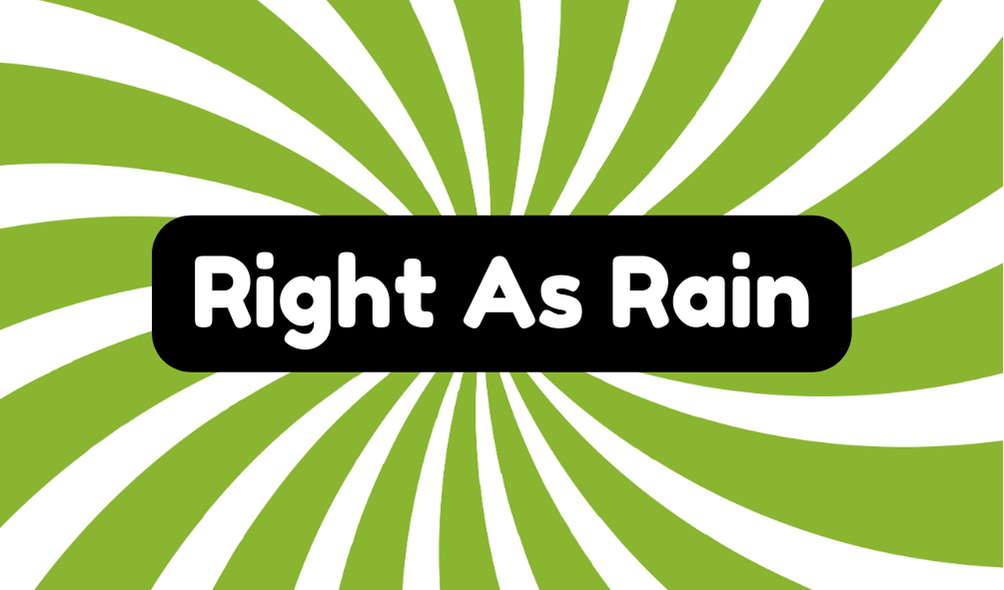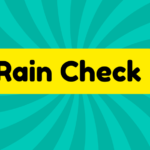"Right as rain" means feeling perfectly well or satisfied. This expression likely originated in 19th century England, with its first recorded use in 1894. While it evokes a sense of wellness, you should be cautious; relying too heavily on cliched phrases like this can mask real issues. For example, you might say, "After a good night's sleep, he felt right as rain," highlighting its everyday use. The phrase remains relevant today, reflecting cultural sentiments about health and happiness. To understand its impact further, you might want to explore its synonyms and how it fits into modern conversations.
Synonyms
When you think about the phrase "right as rain," several synonyms come to mind that convey similar meanings of wellness and satisfaction. While these healthy expressions are often interchangeable, it's important to understand their nuances. Here are some idiomatic alternatives that can enrich your vocabulary:
- Fit as a fiddle
- Sunny side up
- In tip-top shape
- On cloud nine
Using these alternatives can add variety to your language, but don't lose sight of originality. The innovation in language arises from embracing both familiar and unique phrases. Remember, while idiomatic alternatives like these can express a sense of well-being, their effectiveness often depends on context. Always consider your audience before using them!
Example of Sentences
Using "right as rain" in everyday conversation can effectively convey a sense of well-being and satisfaction. This idiomatic expression packs a punch, but it's important to use it thoughtfully. Here are some sentence variations you might consider:
- After a good night's sleep, she felt right as rain.
- He was right as rain after taking some time off to recharge.
- Completing the project ahead of schedule made the whole team feel right as rain.
- Few days of sunlight left us all feeling right as rain.
While these examples illustrate the phrase's charm, don't overlook its overuse. Relying too heavily on idiomatic expressions can dilute their impact, so sprinkle them into your dialogue mindfully to maintain their freshness.
Origin
The origin of the phrase "right as rain" remains somewhat elusive, yet it's widely believed to have been coined in England. You might find it interesting that its usage dates back to the 1870s, with the first recorded instance appearing in 1894 by W.L. Phelps. In the historical context, the phrase reflects the linguistic evolution of English idioms, drawing from earlier variations like "right as an adamant." While the direct connection between rain and a feeling of correctness seems weak, it captures a cultural sentiment tied to English weather. This blend of clarity and ambiguity in language invites curiosity, illustrating how expressions can adapt, evolve, and resonate with various audiences over time.
Collocations
Collocations related to "right as rain" frequently emphasize health and well-being, reflecting the phrase's core meaning. Understanding these builds your grasp of idiomatic expressions in various contexts. Here are four impactful collocations:
- Feel right as rain
- Get back to feeling right as rain
- Make sure everything's right as rain
- Keep things right as rain
These phrases might seem straightforward, but their contextual usage can vary considerably. You might hear someone claim they're "feeling right as rain" after a workout or during recovery. It's essential to recognize that while these expressions evoke positivity, they can also mask underlying health issues. So, don't get too swept away; remember to weigh the context before jumping to conclusions about someone's well-being.
How to Use in Everyday Language
Incorporating "right as rain" into your daily conversations can make your language more vivid and relatable. Using this phrase in your everyday expressions can enhance your informal communication, but be cautious—overusing it might make it lose its charm. You might say, "After a weekend of relaxation, I feel right as rain," which instantly conveys good health and satisfaction. However, it's important to be mindful of the context. While this idiom adds color, it shouldn't replace more precise language when needed. If you sprinkle it in thoughtfully, "right as rain" can elevate your dialogue. Aim for balance; don't let trendy phrases overshadow your unique voice or more effective ways to express genuine feelings.
Why Is It Still Relevant Today?
Using "right as rain" in conversation not only adds vibrancy but also showcases its enduring relevance in today's language. This idiom maintains cultural significance, resonating with various age groups and backgrounds. You see, in a rapidly changing world, expressions that evoke certainty and well-being are always important. Modern adaptations are popping up in social media memes and casual dialogues, which helps keep this phrase fresh and relatable. However, one might wonder if such phrases risk becoming clichéd. While reinventing language is crucial, it's also essential to recognize the charm in traditional idioms. Embracing "right as rain" encourages a sense of connectivity, inviting discussion about our wellness and life's ups and downs, thereby reinforcing its timelessness.







